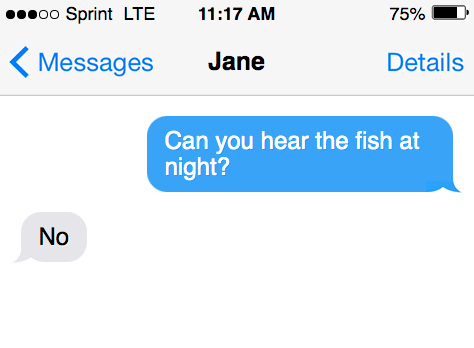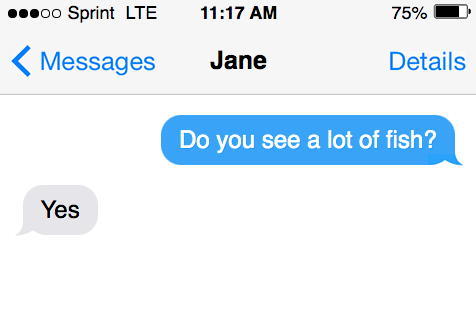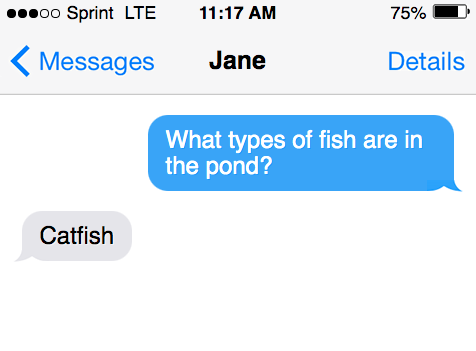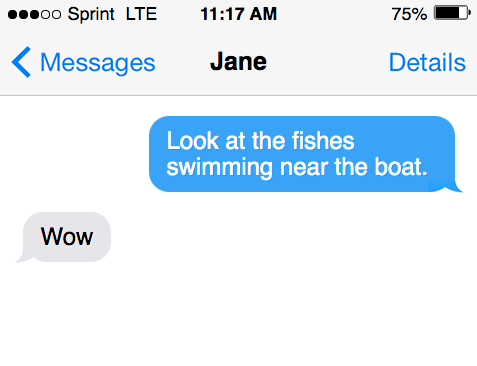Is the correct grammar for the pluralization “fishes” or “fish?” For example, if we are fishing, does that mean we are catching fishes or catching fish? Which is correct in American English?
What is the definition of “fish?”
According to Merriam-Webster, “fish” means “a limbless cold-blooded vertebrate animal with gills and fins and living wholly in water.”
“Fish” as a word is a noun and verb. With the past participle of “fish” being “fishing” and the past tense verb being “fishes.” Most commonly, the verb, noun, and past participle forms are used in the English language.

What are the various tense forms the word “fish” can take?
The word “fish” can be used in various tenses including present, past, and future.
For example:
- Present Tense: I fish every Saturday.
- Past Tense: I fished yesterday.
- Future Tense: I will fish tomorrow.
What is the plural of “fish?”
The plural of “fish” is “fish.” When referring to more than one fish, we say “fish.”
For example:
- I caught two fish.
- We released the fish back into the water.
- Do all languages have a word for “fish?”
No, not all languages have a word for “fish.” For example, in Mandarin, the word for “fish” is yú.

When to use “fish” in an English sentence
The word “fish” can be used as both a noun and a verb. When used as a noun, “fish” refers to a creature that lives in water and has gills and fins.
For example, “I love to eat fish.”
When used as a verb, “fish” means to catch fish for sport or food. For example, “I’m going to go fishing tomorrow.”
How do you pluralize “fish?”
The plural of “fish” is “fish.” When referring to more than one fish, we say “fish.”
For example:
- I caught two fish.
- We released the fish back into the water.
- There are other fish in the ocean.
- I caught a fish yesterday.
- There are fish swimming near our boat.
Are there any exceptions to this rule?
No, there are no exceptions to this rule. The plural of “fish” is always “fish.”
When to use “fishes” in an English sentence
When used as a noun and when referring to a group of fish, “fishes” is the correct plural form of the word “fish.” For example, “The marine biologist was studying the group of fishes in the lake that were taking over the population.”
In this example, we are referring to more than one species of fish. An exception to “fish” or “fishes” is when we are speaking about multiple fish of the same species. For example, “There are three fish in the boat.” In that example, we would not use “fishes.”

Examples in a sentence:
- “There are more than two fishes near our boat right now.“
How to remember which form to use
When referring to multiple species and a group of fish, use the plural form of the noun word “fish,” as “fishes.” “Fishes” is the simple present tense form of the base form “fish.”
The plural form of fish is the same as the singular form when referring to one kind of fish.
When we are speaking about multiple types of fish than the alternative common plural form of “fish” is acceptable: fishes.
For example, “There are many different species of fishes swimming near the boat right now.”
Frank Herbert, author of Dune series says, “if fishes were wishes, we’d all cast nets.” This idiom is a popular form of using the alternative common plural form of “fish.”
Another example is in the Godfather movies, Luca Brasi says, “sleeps with the fishes.” Referring to the many groups of fish that the person will be resting with (means Luca Brasi sleeps alongside many groups of fish).

Other examples of “fish” used in English literature:
“He directed the people to sit down on the grass. Taking the five loaves and the two fish and looking up to heaven, he gave thanks and broke the loaves.” — Matthew 14:18
In review
Both “fish” and “fishes” is correct. When referring to more than one type of fish, use the word “fishes.” When referring to the plural form of the base form “fish,” use the most common plural form of the word, “fish.” For example, “There is a lot of fish in the pond.”
Sources
- Fish Definition & Meaning – Merriam-Webster
- Past Participles in English Grammar – ThoughtCo
- If wishes were fishes, we’d all cast nets. – Frank Herbert
- sleep with the fishes – Wiktionary
- Matthew 14 – Church of Jesus Christ
- Future tense – Wikipedia
Inside this article
Fact checked:
Content is rigorously reviewed by a team of qualified and experienced fact checkers. Fact checkers review articles for factual accuracy, relevance, and timeliness. Learn more.
Core lessons
Glossary
- Abstract Noun
- Accusative Case
- Anecdote
- Antonym
- Active Sentence
- Adverb
- Adjective
- Allegory
- Alliteration
- Adjective Clause
- Adjective Phrase
- Ampersand
- Anastrophe
- Adverbial Clause
- Appositive Phrase
- Clause
- Compound Adjective
- Complex Sentence
- Compound Words
- Compound Predicate
- Common Noun
- Comparative Adjective
- Comparative and Superlative
- Compound Noun
- Compound Subject
- Compound Sentence
- Copular Verb
- Collective Noun
- Colloquialism
- Conciseness
- Consonance
- Conditional
- Concrete Noun
- Conjunction
- Conjugation
- Conditional Sentence
- Comma Splice
- Correlative Conjunction
- Coordinating Conjunction
- Coordinate Adjective
- Cumulative Adjective
- Dative Case
- Determiner
- Declarative Sentence
- Declarative Statement
- Direct Object Pronoun
- Direct Object
- Diction
- Diphthong
- Dangling Modifier
- Demonstrative Pronoun
- Demonstrative Adjective
- Direct Characterization
- Definite Article
- Doublespeak
- False Dilemma Fallacy
- Future Perfect Progressive
- Future Simple
- Future Perfect Continuous
- Future Perfect
- First Conditional
- Irregular Adjective
- Irregular Verb
- Imperative Sentence
- Indefinite Article
- Intransitive Verb
- Introductory Phrase
- Indefinite Pronoun
- Indirect Characterization
- Interrogative Sentence
- Intensive Pronoun
- Inanimate Object
- Indefinite Tense
- Infinitive Phrase
- Interjection
- Intensifier
- Infinitive
- Indicative Mood
- Participle
- Parallelism
- Prepositional Phrase
- Past Simple Tense
- Past Continuous Tense
- Past Perfect Tense
- Past Progressive Tense
- Present Simple Tense
- Present Perfect Tense
- Personal Pronoun
- Personification
- Persuasive Writing
- Parallel Structure
- Phrasal Verb
- Predicate Adjective
- Predicate Nominative
- Phonetic Language
- Plural Noun
- Punctuation
- Punctuation Marks
- Preposition
- Preposition of Place
- Parts of Speech
- Possessive Adjective
- Possessive Determiner
- Possessive Case
- Possessive Noun
- Proper Adjective
- Proper Noun
- Present Participle
- Prefix
- Predicate



